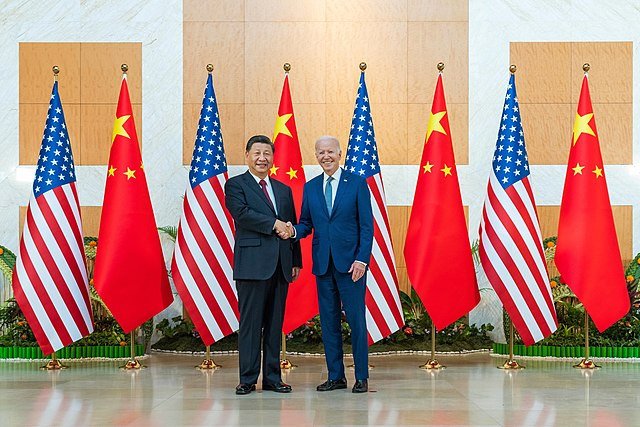In what could be their final face-to-face meeting, President Joe Biden and Chinese President Xi Jinping met at the Asia-Pacific Economic Cooperation (APEC) summit in Lima, Peru, to address U.S.-China relations ahead of a new administration under President-elect Donald Trump. The summit comes as both countries brace for a diplomatic shift with Trump poised to take office, having signaled a markedly different stance on China.
Xi's remarks, while carefully measured, signaled Beijing's willingness to maintain continuity in bilateral relations. "China is ready to work with a new U.S. administration to maintain communication, expand cooperation and manage differences," he stated. Though he refrained from directly mentioning Trump, Xi's comments underscored concerns over the incoming president's "America First" policies.
The meeting also took place against a backdrop of notable appointments within the Trump administration, including Tesla CEO Elon Musk, who will head the new Department of Government Efficiency. Musk's ties with China, where Tesla operates a significant production facility, present a striking contrast to Trump's more confrontational approach. Musk has openly criticized tariffs, stating at a Paris conference, "Neither Tesla nor I asked for these tariffs... Things that inhibit freedom of exchange or distort the market are not good." His cooperative stance towards Beijing stands in contrast to Trump's proposed 60% tariffs on Chinese imports.
Trump's appointments of China hawks, such as Marco Rubio and Mike Waltz, to key foreign policy positions signal a more aggressive stance. "Tariffs are the greatest thing ever invented," Trump declared in a campaign speech, pointing to what he described as an $800 billion trade deficit with China. As such, the incoming administration's strategy seems set to heighten tensions.
During the meeting, Biden pressed Xi on several critical issues, including China's indirect support for Russia amid its war in Ukraine, human rights concerns, and Taiwan, which Beijing claims as part of its territory. Biden also urged Xi to discourage North Korea from increasing its military support for Russia. "We haven't always agreed, but our conversations have always been candid and frank," Biden remarked, emphasizing the importance of dialogue in preventing conflict.
Xi, for his part, called for continued collaboration, stating that a stable U.S.-China relationship is vital for both nations and "the future and destiny of humanity." His comments reflected China's interest in mitigating the effects of Trump's anticipated trade policies, particularly given the economic stakes involved. "Only mutual, beneficial cooperation can lead to common development," Xi said, criticizing any effort to decouple economic ties.
The stakes in the U.S.-China relationship are high, with intelligence reports revealing that China has increased sales of technology to Russia and conducted cyberespionage campaigns targeting U.S. entities. Biden raised these issues with Xi, underscoring the challenges the new administration will face.
American companies, anticipating shifts in trade policy, have already begun diversifying supply chains away from China. Major brands like Nike and Steve Madden plan to cut imports from China, reflecting broader economic concerns. Trump's proposed tariffs have further fueled uncertainty.
As Biden wraps up more than five decades in public service, he emphasized the significance of U.S.-China relations. "For over a decade, you and I have spent many hours together... These conversations prevent miscalculations," he told Xi, highlighting their long history of engagement.






